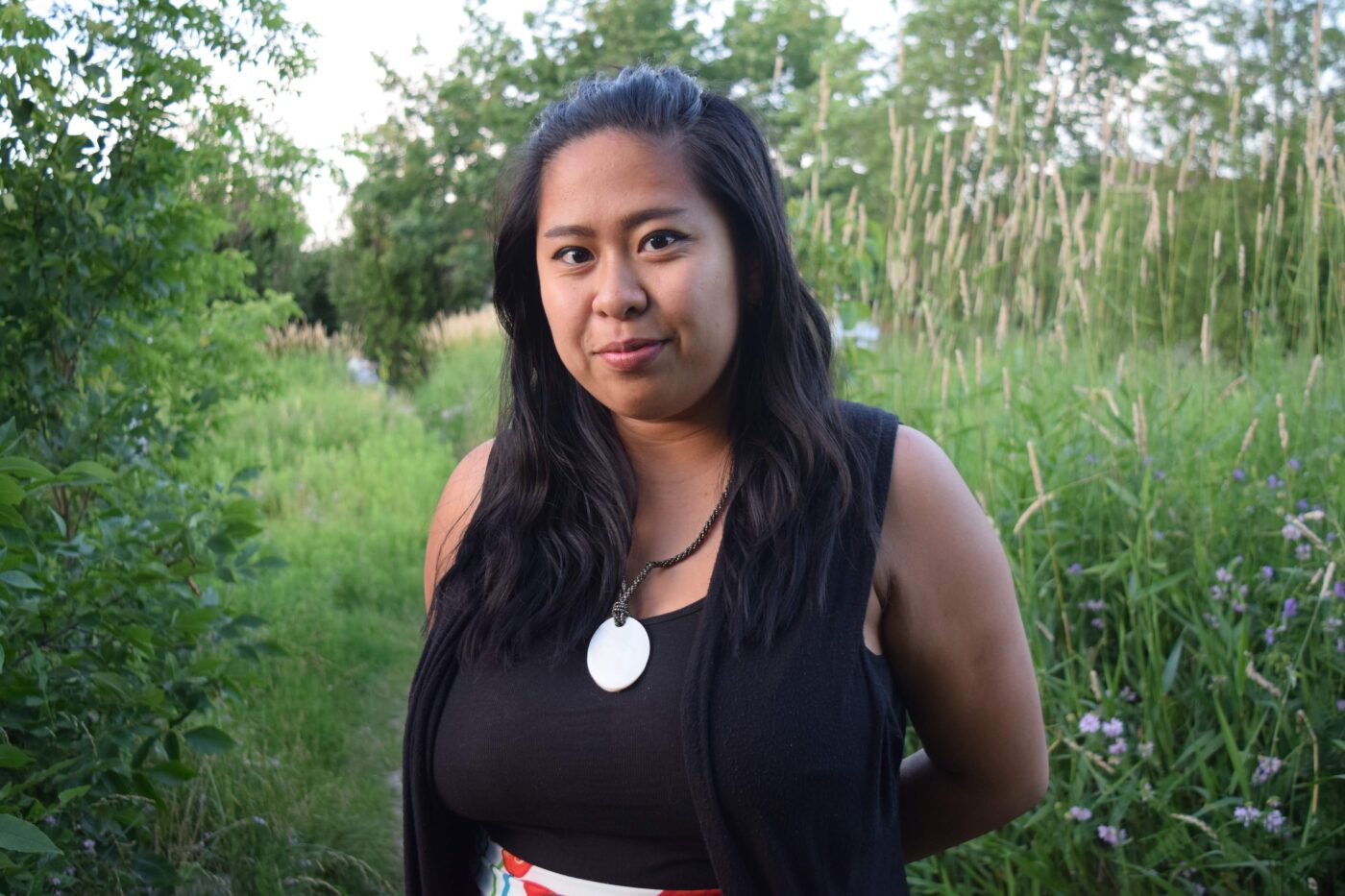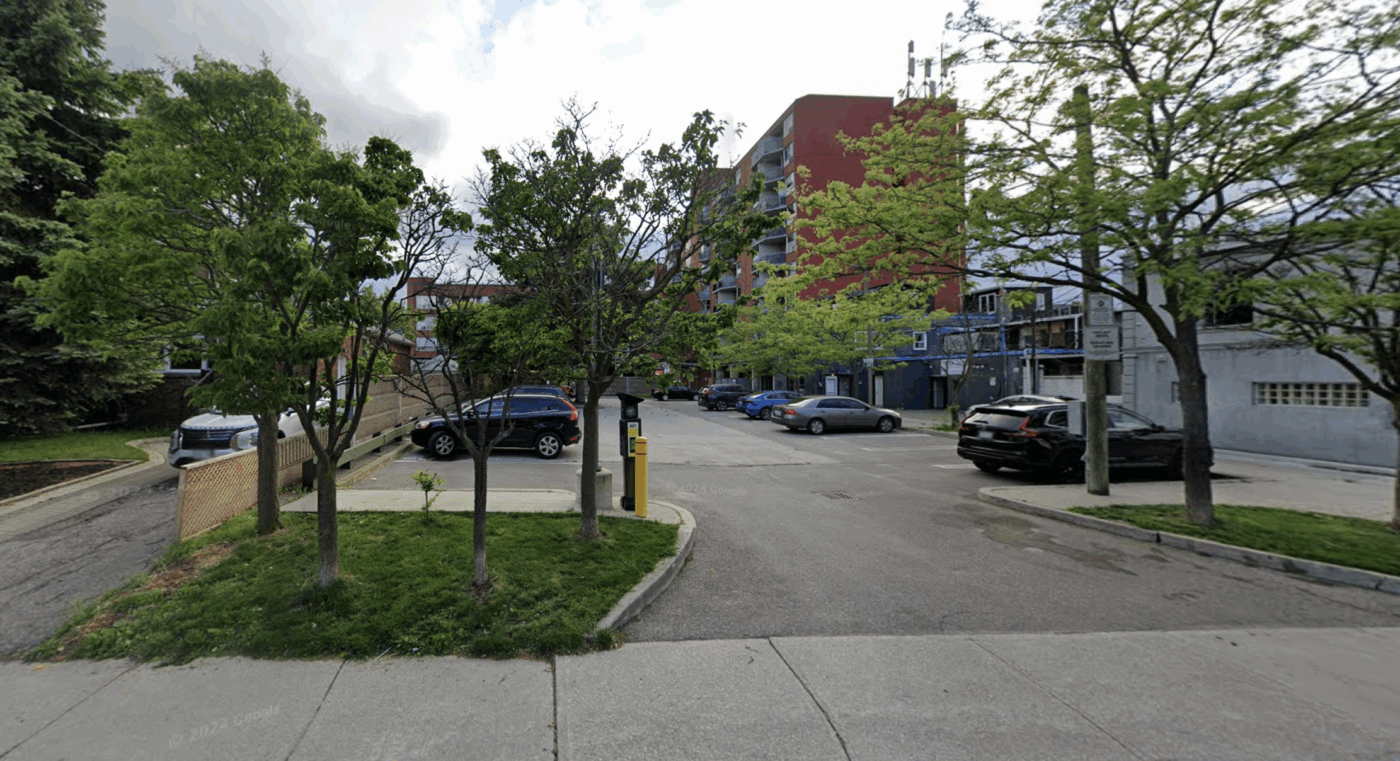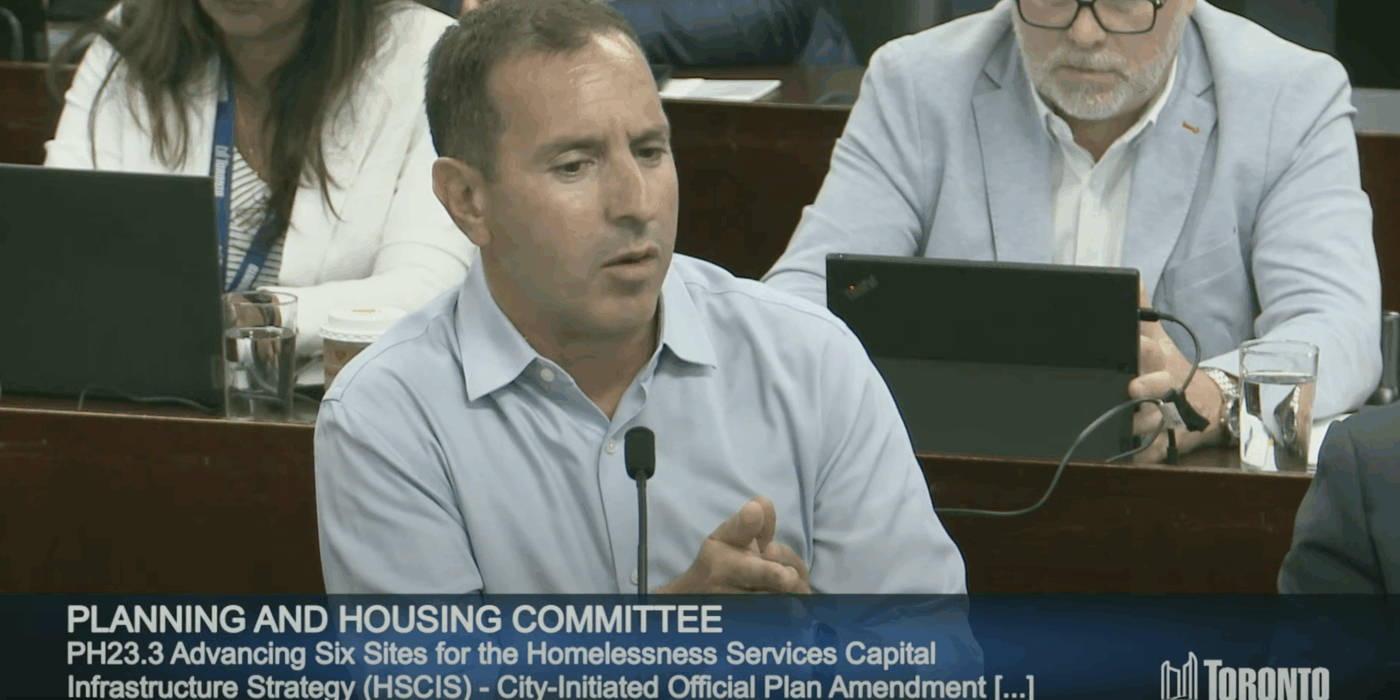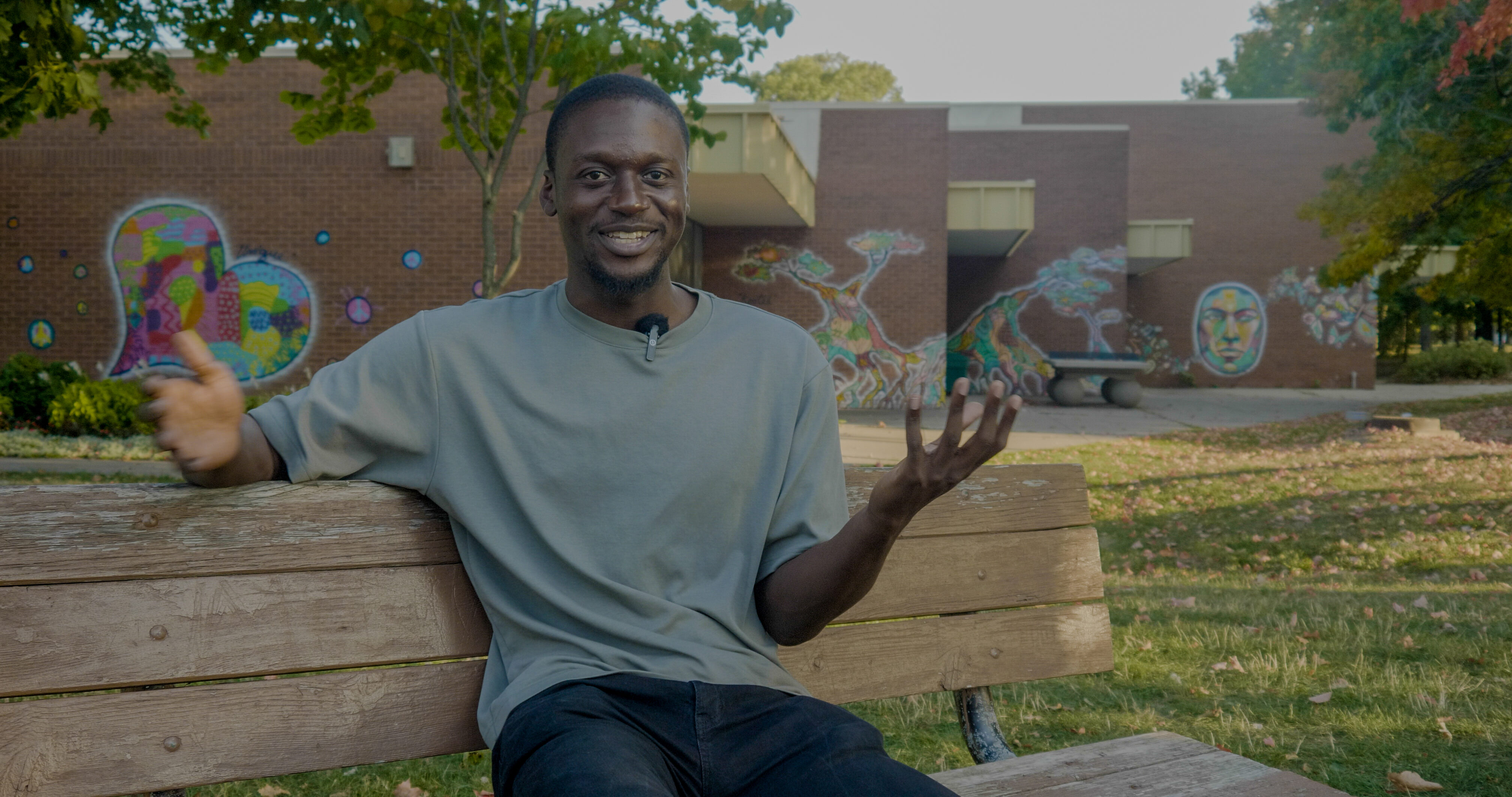THE GREEN LINE'S
CHANGEMAKER INTERVIEW
How Etobicoke residents are organizing in support of a local shelter
For our October 2025 Changemaker interview, our Documenter Morgan Miya spoke to Karen-Luz Sison, co-organizer with the Etobicoke Lakeshore Shelter Support Coalition, about how the group is fighting for a new homeless shelter.

Karen-Luz Sison, organizer with the Etobicoke Lakeshore Shelter Support Coalition.


MORGAN MIYA
Curious luddite who firmly believes that community is everything and works towards keeping her neighbourhood of Little Jamaica healthy. Loves to travel the world within Tkaronto.

Mary Newman
British-Canadian journalist with a decade’s experience producing for the BBC and CBC. Hails from Robin Hood country so naturally hates wealth inequality and loves organized labour. Now resides in the dog paradise of Roncesvalles.
Oct. 10, 2025
This interview is part of Documenters Canada, which is partly funded by the Social Sciences and Humanities Research Council of Canada (SSHRC). Learn more about our program here. The Green Line maintains full editorial independence to ensure journalistic integrity.
Toronto’s homelessness crisis is becoming harder to ignore.
In just three years, the city’s unhoused population has more than doubled, reaching about 15,400 people last fall. With the shelter system stretched beyond capacity, many unhoused residents are being turned away.
In response, as The Green Line previously reported, Toronto’s Planning and Housing Committee voted on July 15, 2025 to advance six new shelter sites that would add 420 beds across the city. One of those sites — 66 Third St. in Etobicoke — is slated to specifically serve homeless seniors, who are particularly vulnerable.
But the proposal has sparked local division. The New Toronto Initiative, also known as the South Etobicoke Community Association, is suing the City of Toronto and the local councillor for $1 million, alleging residents weren’t properly consulted about their concerns around community safety.
At the same time, another neighbourhood group — the Etobicoke Lakeshore Shelter Support Coalition (ELSSC) — is pushing back, advocating in favour of the shelter and challenging what they say is misinformation about the project.
For The Green Line’s October 2025 Changemaker interview, Documenter Morgan Miya sat down with Karen-Luz Sison, co-organizer with the ELSSC, to talk about the group’s grassroots advocacy and why they believe the shelter is urgently needed.
Tell me about ELSSC. What is their focus? How did they get started and when?
The ELSSC is a group of residents from Ward 3 Etobicoke-Lakeshore who came together because we saw the need to support this big shelter project that's happening.
There's been a highly organized opposition to the construction of the shelter, despite the fact that we're in a housing crisis. In response, a group of folks who do things like their own little street outreach and serve meals [to homeless people] decided to come together to show more visible support for the shelter.
I met some of them at this community consultation hosted by the City back in February. I walked into that room feeling quite scared because I knew there was an organized effort against the shelter — they were very loud. It was kinda scary to be in that room. But I found folks who did support the project and who weren’t just supporters verbally, but also deeply cared about those who are unhoused in our neighbourhood and showed up in very tangible ways.
And so we started to meet more regularly to talk about how we can support the project that's not even slated to open for another couple of years. And it grew and it was really awesome to meet more neighbours who cared a lot about supporting those who are unhoused.
We came together through counter protests, through constantly keeping an eye out for items related to the shelter at City Council. We started a petition, we banded together to write letters to the City and deputed as well. Our group is completely volunteer-run. It's been a really big joy to see how people come together to support those who are unhoused.
Can you tell me about your advocacy wins and losses?
One big win was definitely getting media coverage of our counter protest. Those who are opposed to the shelter were often able to get news coverage. And so we had caught wind of the protest rally being hosted by the anti-shelter group in our ward and decided to show up and counter protest just to show to the rest of Toronto that there are people in South Etobicoke who care about those who are unhoused. It was pouring rain, it was wet and cold, but we had a good bunch of about 20 to 30 people come through and we were able to get a more balanced coverage of the situation in Etobicoke as a result. We had coverage in CityNews and CBC. It was fantastic to see that narrative shift in real time, and also hear from those outside of Etobicoke and learn more about the pro-shelter sentiments in our area. That was a really big win.

The site at 66 Third St. is proposed to be developed into a shelter for homeless seniors.

Another great win from more recently is that we managed to secure a Local Leadership Grant from the City of Toronto for a series of workshops around homelessness education. In doing this work, we realized that one of the big issues facing our neighbourhood is just the lack of information, or just plain misinformation out there.
We wanted to create something that would get people to lean into conversations in person. And so we proposed that to the City of Toronto and we managed to get awarded the grant. And our workshops are happening this month.
Another win was definitely just growing our presence on social media. In the last six-ish months, our educational content has managed to reach over 20,000 users.
The biggest win is definitely helping get the zoning amendments for all six shelters passed at the Planning and Housing Committee, back on July 15. That was definitely a collective effort with folks who are involved in advocacy from across the city.
It was a long day of deputing for these amendments, but collaborating with other advocates across the different wards who were also facing pushback for the shelter projects in their wards, was such a beautiful and tangible thing to see.
The motion for those zoning amendments went forward to the City Council and got approved, despite pushback. So the shelter projects are still a go and it's really awesome to see.

A screenshot of the live recording of the Planning and Housing Committee meeting on July 15, 2025.

I wouldn't call them losses, but more challenges. I think just doing this kind of work, people who care deeply are often prone to burnout. I definitely had to take a step back for a little bit when things were quieter after zoning amendments and just take a beat and assess what to work on.
What advice would you give to someone who's never organized before but is passionate about something in their neighbourhood?
Connect and collaborate with those in your neighbourhood who've already started working on the issues you care about! Sharing knowledge, skills and presence with other like-minded folks is the most life-giving part of advocacy. The ELSSC is a multigenerational group, and I've learned so much about my ward's specific and historic context with homelessness and housing from those who’ve lived here far longer than I have.
How can people support ELSSC?
You can follow us on Facebook or Instagram or attend one of our community learning series.
Our Documenter's local perspective
When tasked with conducting an interview with a Toronto Changemaker on the subject of housing, one of the first people Miya thought of was Sison. The two had met at a justice and mercy-themed book group. Miya recalls a conversation they had, where Sison shared that she wanted to be a homelessness advocate, but wasn’t sure how or where to start.
Since then, Sison and other neighbours and supporters of the shelter came together to form ELSSC. Sison gave her first deputation at the July 15, 2025 City of Toronto Planning and Housing Committee meeting, which Miya documented for The Green Line. Despite being a young organization, having only formed in February 2025, the group has already achieved a lot, which Miya hopes will inspire other community grassroots organizations.
Much of what Sison shared in her interview resonated with Miya, especially around NIMBYism — a "not in my backyard" attitude which opposes development in one’s neighbourhood. It reinforced the power of collaborative community care, which Miya has also witnessed in her voluntary work with the Oakwood Vaughan Community Organization (OVCO) and in her neighbourhood of Little Jamaica. Miya explains that it’s powerful to see people who have nothing to gain, working towards a common goal, sometimes for people they don’t know and may never meet: “I can’t explain why we do it, but it always lifts my heart and sometimes, when I need it most, restores my faith in humanity.”
Fact-Check Yourself
Sources and
further reading
Don't take our word for it —
check our sources for yourself.
Care about our city, but don't know how to make it better? Sign up for simple, step-by-step guides to solving problems in your neighbourhood — one small action at a time.
